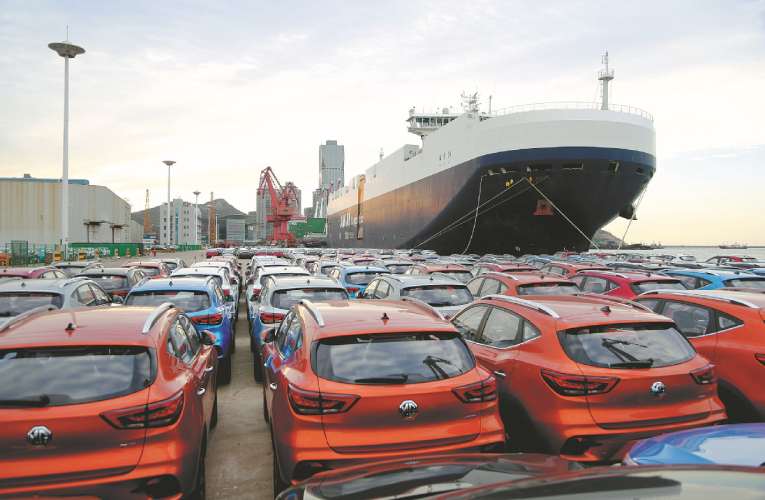
13 percent of China’s fleet will become completely electric or hybrid by the end of 2025 as compared to 6 percent internationally
For the past couple of years, China has been very very active in launching affordable electric cars with sophisticated features, which is putting the western EV market at risk. A year back, China sold a huge volume of EVs and hybrids with a global market share of 13 percent. In Europe in 2022, around 850,000 electric passenger vehicles were imported out of which half appeared from China.
Chinese premier Xi Jinping, has ordered chinese EV makers to go for net zero emissions by the end of 2060, claims Amy Hawkins of the Guardian. According to Hawkins, 13 percent of China’s fleet will become completely electric or hybrid by the end of 2025 as compared to 6 percent internationally. The country witnessed a staggering growth in this industry, but global analysts have opined that as the government tailing off state subsidies and the escalating geopolitical scuffles might put the country at danger in terms of international demand for its vehicles.
In 2022, China already terminated a state subsidy scheme for EVs, which was there in the country for more than decade. An amount of £16.5bn was allocated by the Chinese government for the EV industry between 2010-2020. The Guardian exclusively reported that China asked the EV companies to show “core socialist values” and “not disrupt fair competition with abnormal pricing”. Therefore, top leaders from sixteen companies in China including Tesla and BYD signed an agreement following the order from the industry minister.
In June 2023, China allocated a budget of 520bn yuan as tax exemptions over four years for the EV industry. Based in Shenzhen, BYD, one of the largest EV companies in the world has revolutionized this segment in China. In 1995, the firm commenced its operations as a cell phone battery manufacturer and in the early 2000s, it began focusing on vehicles. The company now manufactures one of the most sophisticated car batteries in the globe, dubbed the Blade. In the first six months of this year, the company predicted its revenue growth to be around 192 percent of 225 percent.
Hawkins also reported that the biggest success story of BYD is that now it has huge control on its supply chain, and also minerals mining, which is extremely imperative in battery manufacturing. When prices of important minerals such as manganese, lithium, nickel, and cobalt increased, BYD formed an amicable alliance with processing companies and miners and in April this year, the company signed an accord with Chilean government to set-up a lithium cathode factory with an investment of $290 million.
For the west, the main reason for worry is that China has been dominating the supply chains for decades. Analysts even warned about the Chinese finished goods as a concern of security threat. Apart from this, there is a massive fiscal challenge because EVs manufactured in China could cost European vehicle manufacturers to lose a profit of €7bn a year by 2030. The premium car manufacturers in Europe such as Mercedes, Audi, and BMW have a huge presence in China and if the country is restricted to Europe, then the companies could face a huge loss in profit.
Tu Le, the founder of Sino Auto Insights, a consultancy has told the Guardian exclusively, "It is going to be hard for European and UK politicians to square the circle that is the UK being committed to banning internal combustion engines by 2030 – and Europe by 2035 – without Chinese EVs."

